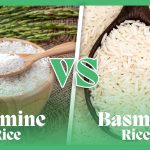Red onions are the hidden heroes of the colorful tapestry of culinary pleasures, contributing not only flavor and beauty to your meal but also a host of health advantages. Let’s dive in and explore the essence of red onions, from their culinary skills to the nutritional benefits they offer, as we set off on this delectable culinary adventure.
What are red onions?
Imagine a jewel-toned bulb with layers that open out like a rose in full bloom, displaying a vivid range of red tones!
Red onions are a culinary treasure that enhances the flavor of foods in addition to being a visual feast. Originally from Asia and the Middle East, red onions have crossed cultural boundaries to become a mainstay in kitchens all across the world.
The scientific name for red onions is Allium cepa, and they are well known for their vivid color and unique flavor in food. This vegetable has a wealth of nutritional value beyond only its culinary appeal, especially when it comes to dietary fiber. In this investigation, we explore the importance of dietary fiber, the benefits of red onions for digestive health, and the key role they play in managing weight.
Red onions are a well-balanced mix of sweetness and subtle pungency and are prized for their adaptability, as opposed to their yellow or white cousins, and may be used in both raw and cooked forms with ease.

Common uses in Cooking:
Red onions have cemented their position in the pantheon of culinary staples with their robust taste and crunchy texture. They provide zest to everything from savory salsas to crisp salads, turning everyday meals into remarkable experiences.
These ruby-hued bulbs play both supporting and leading roles in the world of cuisine. Red onions add a depth of flavor that entices the senses, whether they are finely chopped and adorned in garden-fresh guacamole or caramelized to perfection in a French onion soup. The culinary options are as limitless as the layers just waiting to be peeled, whether they are grilled, roasted, or pickled.
We must explore the nutritional benefits red onions provide while we savor the symphony of sensations they provide our taste receptors. Knowing red onions’ nutritional worth reveals a plethora of health advantages that make them a nutritional powerhouse, even aside from their flavor.
Come with us on this investigation of the ruby pleasure as we uncover the culinary and nutritional secrets that make red onions a basic ingredient in any kitchen by peeling back the layers of taste. A voyage into the world of red onions awaits, so be ready to enjoy the taste and reap the benefits!

Nutrient composition:
The nutritional value of red onions is demonstrated in a 100g portion. These tasty bulbs are a low-calorie way to add depth to a variety of recipes, as they only contain 40 calories. The 100g serving size is a useful benchmark for determining nutrient consumption.
| Nutrient | Amount per 100 grams |
|---|---|
| Calories | 40 |
| Macronutrients | |
| Carbohydrate | 9.34 g |
| Protein | 1.1 g |
| Total Fat | 0.1 g |
| Saturated fat | 0 g |
| Monosaturated fat | 0 g |
| Polysaturated fat | 0.1 g |
| Micronutrients | |
| Vitamin C | 7.4 mg |
| Vitamin B6 | 0.12 mg |
| Folate | 19 mcg |
| Potassium | 146 mg |
| Phosphorus | 29 mg |
| Magnesium | 10 mg |
| Iron | 0.21 mg |
| Calcium | 23 mg |
| Manganese | 0.13 mg |
| Selenium | 0.4 mcg |
| Zinc | 0.17 mg |
Role in Human Nutrition:
Some of the beneficial roles of red onions in health are as follows:
Prevent Cancer:
Flavonoids, especially quercetin, which functions as a strong antioxidant, are plentiful in red onions. These antioxidants shield cells from harm brought on by free radicals, aiding in the body’s fight against oxidative stress. This aids in the prevention of long-term illnesses, such as heart disease and several types of cancer. (1)
Aid in Heart Health:
Red onions contain quercetin, which has been shown to have cardiovascular effects in addition to acting as an antioxidant. According to studies, quercetin may support heart health by lowering blood pressure and LDL cholesterol levels, which lowers the risk of cardiovascular illnesses. (2)
Ease Inflammations:
Anthocyanins and sulfur compounds are two substances found in red onions that have anti-inflammatory qualities. These substances have demonstrated the ability to reduce the body’s chronic inflammation, which is connected to several illnesses, such as inflammatory bowel disorders and arthritis. (3)
Support Immune System:
Red onions are high in vitamin C, which supports a healthy immune system. Vitamin C is well-known for its ability to increase white blood cell synthesis crucial for preventing infections and preserving immune system health. Thus, consuming red onions might strengthen the body’s defensive systems. (4)
Help in Diabetes Management:
Red onions can assist with blood sugar management, which makes them advantageous for diabetics. Alkyl propyl disulfide is one of the compounds that may improve insulin sensitivity and support stable blood sugar levels. (5)
Healthy Gut:
Red onions are high in fiber, which is not only important for digestive health but also promotes the growth of good gut flora. This promotes a healthy gut microbiota, which enhances nutritional absorption and digestion. Red onions are friends of the digestive system because of their high dietary fiber content.
Red onions’ soluble fiber concentration encourages the growth of good bacteria, which helps to maintain a healthy gut microbiota. Short-chain fatty acids (SCFAs), which nourish colon cells and promote general gut health, are produced by these bacteria as a result of their contribution to the fermentation of fiber (6).
Additionally, red onion’s insoluble fiber gives the stool more volume, which helps to maintain regular bowel movements and prevent constipation. The soluble and insoluble fibers work together in a dynamic way to support a healthy and balanced digestive tract.
Help in Weight Management:
The fiber content of red onions makes them unsung heroes when it comes to weight management. Eating foods high in fiber, such as red onions, makes you feel fuller for longer and helps you consume fewer calories overall (7). Furthermore, the soluble fiber can aid in blood sugar regulation, avoiding the spikes and crashes that frequently result in unhealthy food cravings (8).
Research has indicated that consumption of more fiber typically weighs less and has a lower body mass index (BMI) (9). Red onions can help people achieve their weight control objectives by providing dietary fiber in a well-balanced diet.
Adverse effects of Red Onion:
Although red onions are loaded with health advantages, it’s important to recognize that eating them may have negative consequences for certain people. It’s crucial to remember that each individual will experience these effects differently, so moderation is essential. The following are some possible negative health consequences of red onions:
Gastrointestinal Discomfort:
Fructans, a kind of carbohydrate found in red onions, are known to produce gas and bloating in those who are sensitive to fermentable oligosaccharides, disaccharides, monosaccharides, and polyols (FODMAPs).
Allergic Reactions:
Red onions may cause allergies in certain people, which might manifest as hives, swelling, itching, or even more serious responses like anaphylaxis. Although they are uncommon, allergic reactions to onions should be treated seriously.
Heart Burn:
Acid reflux and heartburn: Due to their acidic nature, red onions may make those with gastroesophageal reflux disease (GERD) or persistent heartburn feel worse.
Blood Thinning:
Anticoagulant Properties: Red onions have substances that may have anticoagulant properties, such as quercetin. Although this may be advantageous for cardiovascular health, anyone with bleeding problems or those on blood thinners should exercise caution and speak with a healthcare provider.
Drug Interaction:
Red onions and some drugs may interact with one another. Red onions, for instance, may have an impact on blood sugar management, thus people taking diabetic medication should closely check their blood sugar levels.
Digestive Upset:
People with sensitive stomachs or gastrointestinal disorders like irritable bowel syndrome (IBS) may experience discomfort as a result of the sulfur compounds in onions irritating their digestive tracts.
Breath and Body Odor:
Onions’ strong scent can cause visible body and breathe odor. Although there is no health danger, some people may find this uncomfortable in social situations.
It’s important to stress that not everyone has these negative effects, and many individuals may eat red onions without any issues. Furthermore, using appropriate cooking techniques, including sautéing or caramelizing, might help lessen some of the negative consequences of eating raw onions. A licensed dietician or other healthcare expert should be consulted by those with specific health issues or conditions for advice that is customized to their requirements and situation.
The common red onion turns into a brilliant ally for your health as well as a gastronomic star in the colorful world of nutrition. It is a flavor-filled, health-promoting treasure, full of layers of antioxidants and maybe heart-loving potential.
The red onion is more than just a common kitchen product; it’s a pleasant hidden element for a happier, healthier life. Enjoy its zesty taste in a salad or let it work its magic in a hearty stew. Accept the red onion’s charms and let your path to health be as colorful as it is!
References:
- https://doi.org/10.1080/13880209.2021.1874028
- https://doi.org/10.1155/2021/8875729
- https://doi.org/10.3390/molecules25173809
- https://doi.org/10.3390/nu9111211
- https://doi.org/10.3390/molecules23092338
- https://doi.org/10.1080/19490976.2017.1290756
- https://doi.org/10.1080/07315724.2013.791194.
- https://doi.org/10.3390/nu5041417
- https://doi.org/10.1093/jn/130.2.272S









